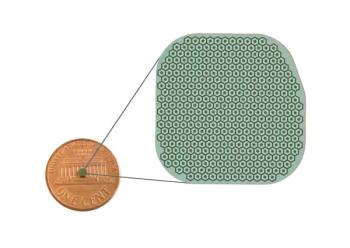
AAOpt 2024: Nutrition for enhanced visual performance in sports
Graham Erickson, OD, FAAO, FCOVD, states that maintaining eye and brain health through proper nutrition, whether through diet or supplementation, can have a significant impact on various aspects of sports performance.
Graham Erickson, OD, FAAO, FCOVD, from Pacific University College of Optometry discusses the impact of nutrients, particularly lutein and zeaxanthin, on visual performance and brain function. Erickson highlights the importance of macula pigment density in various visual functions, such as contrast sensitivity, glare recovery, and photo stress recovery. Recent studies have shown that proper supplementation with these carotenoids can lead to significant improvements in visual and cognitive performance, even in young, healthy individuals between the ages of 18 and 30. The speaker emphasizes that those with low macula pigment density have the most room for improvement and can benefit the most from supplementation.
The discussion also touches on the relevance of these findings for physical activities, including driving and sports, as well as the growing field of e-sports. The speaker notes that e-sports athletes may not have the best dietary habits, making supplementation a valuable option to enhance their visual reaction time and overall performance. When it comes to selecting quality supplements, the speaker recommends looking for products that are NSF-certified for sports, as this ensures the products contain the claimed ingredients and do not include any banned or harmful substances. Establishing connections with industry partners and their representatives can help streamline the process of recommending and accessing these certified supplements for patients. The speaker acknowledges that while a healthy, balanced diet is ideal, supplementation can be a practical way to ensure optimal intake of these beneficial nutrients and enhance both visual and brain performance.
The overall message is that maintaining eye and brain health through proper nutrition, whether through diet or supplementation, can have a significant impact on various aspects of performance, from everyday activities to competitive sports and e-sports.
Newsletter
Want more insights like this? Subscribe to Optometry Times and get clinical pearls and practice tips delivered straight to your inbox.




























